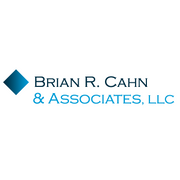The Answers to Your Credit Score Questions

Nowadays, you can track your credit score—or at least an estimate of it—every month for free. Consumers can use apps, websites, and even bank account add-ons to monitor their financial health. This can be especially helpful when paying down credit card debt because seeing the score increase gradually will provide the motivation to keep going. Debt load is just one of the factors that influence credit scores, though. To learn about the rest and about credit scores in general, here are the answers to the biggest questions below.
Credit Score FAQ
What’s a good score?
Different credit reporting agencies have different scales, so the numbers can vary slightly. In general, though, credit scores usually range from 300 to 850. The higher your score, the easier it will be to obtain credit and secure financing at a reasonable interest rate. Typically, a good score is anything over 700, while an excellent score is anything over 750.
What kinds of factors determine someone’s score?
There are three primary factors that determine a credit score: public records, open accounts, and hard inquiries. Public records include things like bankruptcy filings and evictions. Open accounts refer to your current debt load, which might be comprised of credit card debt, student loans, car notes, and mortgages. Having several different kinds of accounts can boost your credit—as long as you stay on top of all of them. Finally, hard inquiries are requests by lenders to review your report before extending an offer.
Could my partner’s credit affect my score if we get married?
 While the financial decisions you and your spouse make will affect your credit score, each of you will retain an individual credit history even after tying the knot. Just remember that co-signing on loans, opening joint accounts, and becoming an authorized user on someone else’s account will affect your rating.
While the financial decisions you and your spouse make will affect your credit score, each of you will retain an individual credit history even after tying the knot. Just remember that co-signing on loans, opening joint accounts, and becoming an authorized user on someone else’s account will affect your rating.
What’s the fastest way to improve my score?
Unfortunately, there’s no foolproof way to boost your credit overnight (and you should be wary of anyone who promises to do so). There are steps you can take to improve your score relatively quickly, though. Examples include eliminating any inaccuracies in your report, paying down all balances, increasing the limits on revolving accounts, and becoming an authorized user on someone else’s account. If your score is in the poor range, getting a secured credit card is an effective first step toward rebuilding.
If you’re facing an overwhelming amount of credit card debt, turn to Brian R. Cahn & Associates, LLC. With offices in Cartersville, Calhoun, Dallas, Dalton, and Woodstock, this firm represents clients all over North Georgia. Led by Attorney Brian Cahn, who has been in the field for 25 years, they focus solely on bankruptcy law. Whether you want to stop a foreclosure or discharge medical debt, you can rely on them for strategic legal guidance. To discuss your mounting credit card debt with a compassionate member of their team, call (770) 382-8900 or visit their website to find the location nearest you.
About the Business
(23 reviews)
Have a question? Ask the experts!
Send your question

